
All images courtesy of Kenney Jones
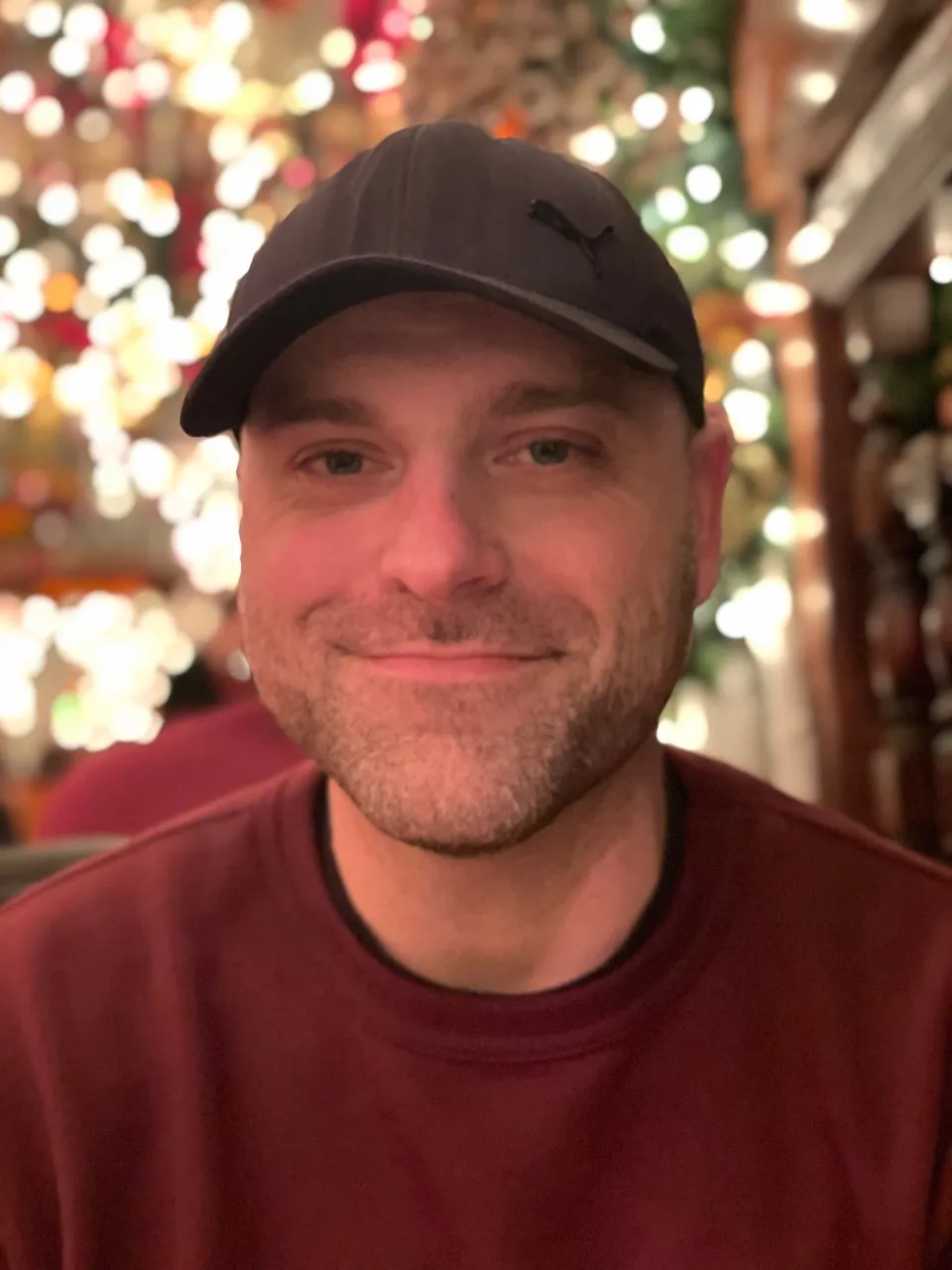
By Andrew Daly
[email protected]
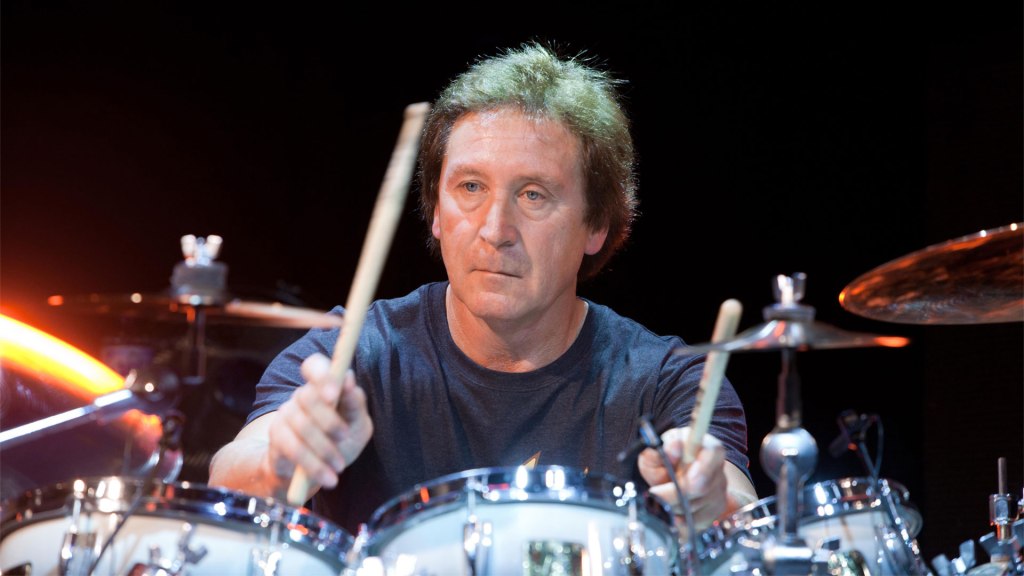
While I’ve spent a large portion of my musical life idolizing guitar players, as well as wishing I could play guitar myself, in reality, I am a drummer. Yes, it’s true that from a young age it became painfully apparent that my fingers simply are not designed to move in the ways that are required for a person to play guitar. What was also apparent from a young age was that I had an innate knack for the drums.
As a kid growing up in the 90s, my musical tastes were considered “weird.” Back then, it wasn’t common for 10-year-olds to be interested in bands like KISS, The Eagles, Led Zeppelin, and The Who. Once my dad got me my very own drumset, which was a late 80s Pearl Export Series in burgundy red, with a fresh set of Zildjian cymbals, and a cowbell, my love for this music only intensified. After that, for a while, nothing else really mattered.
Now, when it comes to the drums, I immediately gravitated toward more energetic, bombastic, and busy players such as Peter Criss, Mitch Mitchell, and Keith Moon. I realized very quickly that I would never be able to remotely emulate what Keith Moon was doing, and resolved to give up trying to play along to the music of The Who, until I came upon their 1981 record, Face Dances. I say record because I was listening to this music on vinyl, through an old Epiphone guitar amp my dad had rigged up into a mono-speaker, which if you haven’t guessed was also weird on all levels for a kid in the 90s, but that’s a story for another day.
Anyway, Face Dances is significant for me because this is where I discovered Kenney Jones. Kenney had taken over the sticks for The Who after Keith Moon’s untimely, but not altogether shocking death in 1978. I distinctly recall listening to “You Better You Bet,” and thinking, “Finally…something by The Who I can play along to.” It was Kenney Jones who taught me an all-important lesson: as a drummer, it’s not all about flash and bombast. Keeping time, and playing tasteful, yet razor-sharp fills is what is most important, then, and only then do you inject your style, which is always based on what the song requires.
Not too long ago, I had the opportunity to chat with one of my personal drumming heroes in Kenney Jones. Among other things, we talk about Kenney’s early days as a mod, the formation of The Small Faces and their subsequent transformation into The Faces, his journey with The Who, and a whole lot more.
If you would like to learn more about Kenney Jones, I would encourage you to visit his website and dig in. Once you’ve done that, check out this interview with one of the truly underrated, yet important sticksmen in Rock music history, Kenney Jones. Cheers.
Andrew:
Kenney, I really appreciate you being here and taking the time today. How have you been holding up over the course of the last year or so?
Kenney:
Oh, I’m fine. Well, like everybody else, you know, a little bit bored with keeping ourselves busy, trying to play drums and things like that.
Andrew:
Right. So, before we dive into your professional career, I wanted to go back and just touch a little bit on your early days. What got you hooked on music, Kenny?
Kenney:
Music was, I suppose, meant to happen for me. What got me into it was when I was a kid growing up, I used to watch the marching bands go around the east end of London. The Catholic processions would ride like a band going around the roads. I used to watch them march and I’d pretend I was playing along to the drums in a certain way. So, I didn’t have a drum kit when I was young, but dad was a bit of a carpenter. He would go out back to his country shed and connect all these bits and bobs, which he said when I was a child, I would sit down with bits of firewood and pound away on those. That’s what got me into it, I suppose.
Andrew:
Wow. So, that’s how the drums came into the picture for you. So who are some of your earliest influences?
Kenney:
Well, it’s a bit all over the place. I wasn’t schooled or anything on drums, I just immersed myself in great music. When I really started to get into it I’d say Al Jackson from Booker T. & the M.G.’s got my engine going and then The Shadows Brian Bennett was a sensational drummer. I was turned onto him, and that when I said, “OK, this is really something right here.”
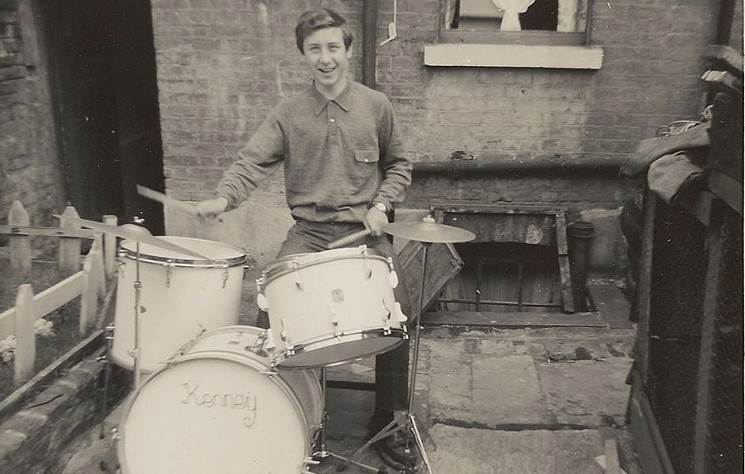
Andrew:
Of course, you’re one of the founding members of The Small Faces, which is a truly underrated group, although I think in retrospect a lot of people are starting to catch up with what you all were doing. For those that don’t know, how did things get started with The Small Faces?
Kenney:
Right. The Small Faces were kind of a band that was meant to be. I taught myself how to play drums in three months and I thought I could be an energetic musician. [Laughs]. So, I went to town about this Jazz band that had been playing at a pub and they sang too. So, I went to see them for a couple of weeks and was watching this drummer who was in this little Jazz band. He was one of those singing drummers. After the second week of watching him, he came over to me afterward while the band was on break, and said, “Are you fucking pissed at me?”… I said, “No.” He said, “Well, you keep blinking at us.”… I said, “Oh, no, mate. It’s alright.” So, anyway, we became friends. I said, “I’m just drunk.” [Laughs]. I just taught myself to play the basics and I would watch him to see if I could pick up anything. And then one week I went in there and they announced that this “special guest” is going to come up and play some songs, and they introduce me, and that was the first time I ever played in front of anyone. So, that’s what happened. Now, it was like I was being born again and it was fantastic. And that’s the first time I played with anyone. So, I finished the set and really shook it on down, and afterward, the barman came up to me and said, “That was great. I really enjoyed that.” Then he said, “Well, my brother is a guitar player.” So, they bring him down the next week and Ronnie Lane comes through the door. So when he came in, I just fell over and I started laughing, he had on this great pinstriped suit, and he had already hooked up with Steve Marriot by then. So, that’s how I met them, and that’s where it started.
Andrew:
I know you guys were a really big early part of the mod culture in the 60s, which was an interesting trend, kind of singular to that time and place. What do you remember about that time and how big of a role do you feel The Small Faces played in it?
Kenney:
Well, we were kind of young, but without knowing we were OK in the world, but basically, because we were teenagers after the war we were a product of where we grew up. I grew up in Blackmoor, so I mean, we grew up in black and white, everyone was wearing gray and even the old ladies looked like black and white like nuns. So, one day I saw this bright red jumper hanging in a shop. So, I buy it, and I put it on just like that, I’m a mod. I didn’t know then that it would become “mod style.” Then it got around via word of mouth and became some kind of fashion as well.
Andrew:
So, as the decade wore on, the band put out some really incredible music culminating with Ogden’s Nutgone Flake. I wanted to talk more about that record. Looking back, it’s really a masterpiece of the era. It’s an early example of a concept album before that was even really “a thing.” It wasn’t really commercial, but it was definitely something special.
Kenney:
So, it was never meant to be commercial. It was meant to be us telling a story about the lyrics of the song, the story of the album. And so it’s an adventure. Just a wonderful thing to do. It wasn’t meant to be commercial, it was meant to be a statement.
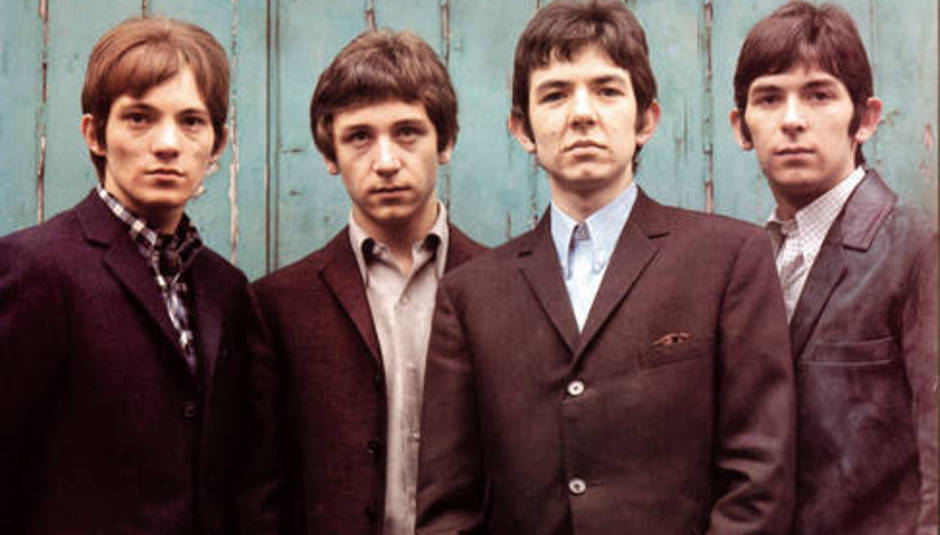
Andrew:
I know that there was some sort of an interesting controversy surrounding the album where the record label put out an advertisement that basically parroted the Lord’s Prayer or something to that effect. How did that come about, and what did you guys think of that when you saw that?
Kenney:
All right. So, when I first saw it, I said, “Whatever, it’s kind of funny.” [Laughs]. Looking back, I don’t know, we probably shouldn’t have done it, but it was quite funny. It was more up to the record label, and we really didn’t have a choice in the matter and didn’t even see it until after the fact.
Andrew:
I think if you’d done it today, I don’t think people would have been as angry. But back then, people were a little bit more buttoned up.
Kenney:
Yeah, well it was about selling the album by saying it was this or that, but really, it was only an interesting addendum to the record. But, you know, people don’t want to register that now.
Andrew:
Probably not. So, as the 60s came to a close, the first classic chapter of the band ended. When people talk about this era, you hear about The Beatles, The Stones, The Who, The Kinks. That said, in your opinion, what’s the legacy of The Small Faces during that period? How important were you as the mod culture gave way to Psych and other different types of Rock music?
Kenney:
Everything was happening so fast at that time. You have to remember, the band was only together for about four and a half years. Basically, what I can’t believe is how many records we made in that short space of time. Just come on. Basically, we were ahead of our time. We never told each other what to do. We just had to stay together, just had the right kind of chemistry– a great chemistry. And over the years, every decade we’ve gotten a lot more fans as our music is handed down from father to son, and mother to daughter over the months and stuff like that all the way down. So, we get younger fans over here every day. So, that sense of it was looking out to the back catalog, which is why there is a huge reason for me to turn it out again, which will be slightly different and make it sound better every time because we know we can do it.
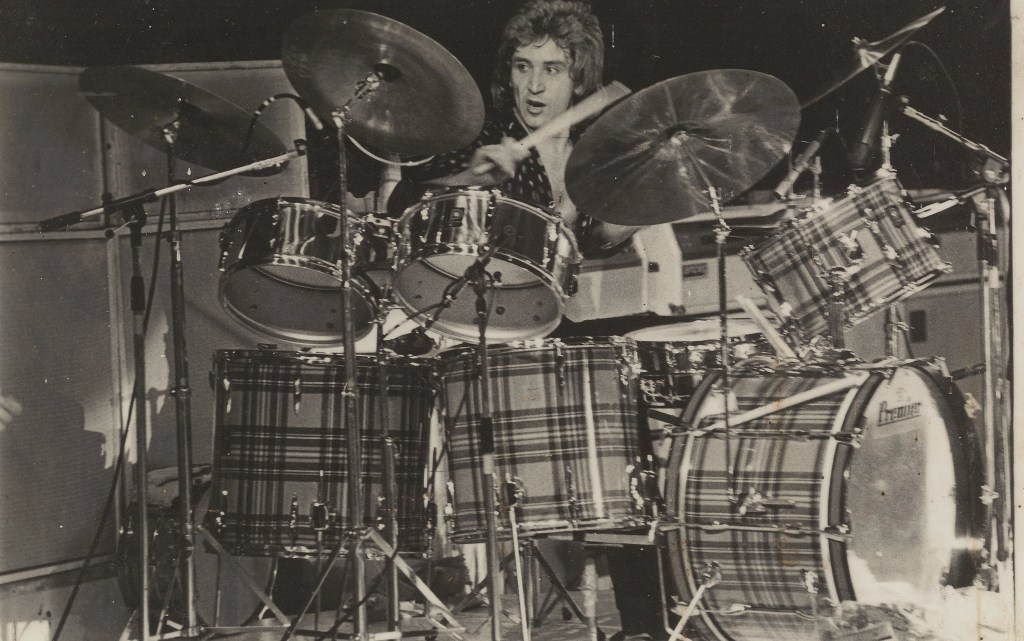
Andrew:
Right, and then I guess at some point there, The Small Faces became The Faces and Rod Stewart replaced Steve Marriott? I am a bit foggy about how that all went down, to be honest. Take me through that sequence of events. How did the dynamics of the band change with Rod in place of Steve?
Kenney:
Well, first, Rod never replaced Steve per se. What it was, was the three of us got together rehearsing and The [Rolling] Stones were outside the studio soundstage. It was so gigantic. Keith Richards said, “Well, you know, let’s just get together and play.” So, we were just hanging around jamming, because we were losing one of our members. And then one day, Ronnie Wood, who was with Jeff Beck at the time, said he wanted to play guitar with us. And so that was that. So, I thought to myself, “Well, we’ve got to get real about this.” So I said, “Look, let’s get real.” So, we started to try some new songs. One evening, I’m watching Rod [Stewart] sitting in on one of his first-ever live sets after he had left the Jeff Beck Group. So, this happened a few times, and one day I said, “Well, gee, fancy, do you think you’d let me sit in?” That evening we went to have drinks with Alvin Lee in London. So, I said, “Can I have a quick word with everyone?” So we went upstairs and I said, “Let’s have Rod as our singer.” Of course, they all said, “Now, we don’t want another prima donna in the band or, you know, someone’s going to walk out on us.” And so then I kept thinking, for me, this was the difference between make or break. Personally, I thought, we’ve got to decide on this now. Rod had a great voice and we were trying to get something formed. So, in the end, we asked Rod aboard, and we started working together. That’s how the slices came together. We had to get together. We didn’t have a name yet, we just had to play, you know what I mean? So, a few weeks down the line, we found out that a record company was interested in us, Warner Brothers. They said, “We would like to give you a deal.” I thought, “Easy answer. Fantastic. We can negotiate a fairly good advance. When do we sign the contract?” So, when we sat down to sign the contract at the Plaza Hotel, the contract said “The Small Faces.” We knew that The Small Faces were completely different than we had so far. Suddenly, it’s not about us anymore, it was about the name. So, he said, “Well, if you don’t call it this, you can’t have all this money. But I’ll tell you what, at first you have to call the band The Small Faces, and then thereafter you can change it to The Faces.” That’s how The Faces became The Faces, which I think was a blessing in disguise because it’s a great name.
Andrew:
Those two records, A Nod’s As Good As a Wink…to a Blind Horse, and Ooh La La are two of the better records of that era. Looking back, what are your thoughts on those records? What was it like making them?
Kenney:
Well, making those albums was a great deal of fun because Glyn Jones was our engineer at the time, he wasn’t actually a producer at the time. He was an engineer. I felt comfortable with everyone. I felt comfortable in the studio, and he got some great sounds out of us. And so I was very comfortable with that. And the songs were a bit weird because Rod had already signed a solo deal with Mercury Records. So, I got the feeling some of the songs he had weren’t put forward as he was going to use them for his own album. So, we were left with a bunch of riffs, basically trying to get it all together. Looking back on it, when we were sober, we tried and I think we succeeded most of the time. It was a lot of fun. Sometimes, the band would just start doing gigs, which was a great big party. You know, the audience knows it too. The audience was crazy, and just having a great time. And the songs were, you know, it’s like “Sweet Lady Mary” is a great, lovely song. “Debris” is wonderful, and all kinds of other stuff, you know, not very emotional. So very, very sort of loose. We were a very elastic band.
Andrew:
Eventually, The Faces did disband and then The Small Faces regrouped…
Kenney:
Oh yes, I regret that. It never should have happened.
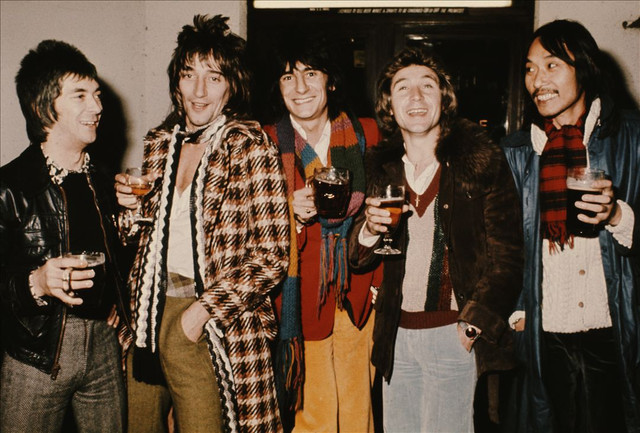
Andrew:
Take me through what happened there.
Kenney:
Well, The Faces split. And once again, we find ourselves with no singer. So we thought, “Look, what do we do?” So, we heard that Steve [Marriot] was available, and decided to reform The Small Faces. Now, I reluctantly did so and was very much against it, but we did it anyway. And at that time Punk Rock was all around, and I knew Steve wasn’t going to be invested, or stay around. I knew this just wasn’t right. So, I felt really uncomfortable, actually. In the end, for all those reasons it didn’t work out, and the album that we made [Playmates] isn’t very good or representative of The Small Faces legacy.
Andrew:
Any chance you ever regroup as The Small Faces again or is that that door closed officially?
Kenney:
It’s closed officially when it comes to The Small Faces. The Faces, however, we’ve done so twice before, and I would do it again. We will do it again, actually. When it comes to The Small Faces, I am the last living member anyway. The rest are up in heaven as they say.
Andrew:
Of course, but sometimes they put bands back together with just one member, you know?
Kenney:
Yeah. And commercially, I suppose if you can get away with it, fine. But, you know, not for me right now. Myself, Rod, and Ronnie Wood have been working on the back catalog of an album because it was The Faces fiftieth anniversary. We were hoping to play some shows, but that’s on hold for now.
Andrew:
Maybe next year when everything opens up.
Kenney:
Well, if everything opens up, it’s in the cards. I’m not going to say no because I want to celebrate the music. So, what we’ve been doing in the interim is working on our back catalog. Between the three of us, we’ve come up with some real gems, some stuff that we recorded before. We did a record deal early this year too.
Andrew:
That’s fantastic.
Kenney:
Yes, I think they are. So, we’ve got the early stuff we can put out as bonus tracks and redo some of the other stuff. And I’m remastering some of the older stuff, which is really good. So, we can mix in and really have some fun with it. That’s what we’ve been working on. We plan to make a couple of really nice memorable boxsets to celebrate the fiftieth anniversary of The Faces.
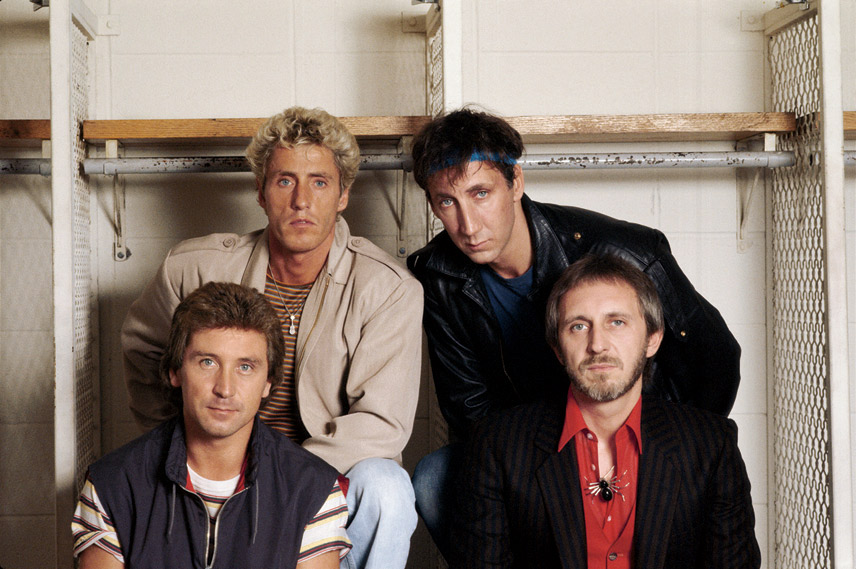
Andrew:
I look forward to those for sure. So, of course, we have to talk about The Who. You joined the band in late ’78 as a replacement for Keith Moon. For those who don’t know the story, how did that end up happening?
Kenney:
Well, I was putting a band together with Glenn Jones doing a transatlantic band. And so Atlantic Records are about to sit down and sign us for 1.5 million dollars. It’s about money for a new band, and they were about to sign us. Then I got a phone call from Bill Curbishley, The Who’s manager, one day, and he said, “Kenney, let me get straight to the point, The Who have decided to stay together, they want you to play drums, and they’re not going to not consider anyone else. They just want you.”… I said, “Well, that’s very nice and very flattering, and I’m very excited about it, but the thing is, I can’t say yes right now because I’ve already got another band together.” Well, I could hear his chin drop on the floor, but I said, “Look, I’m not saying no, but I’ve just spent all this time getting a band together.”… he said, “Well, Pete [Townshend] is coming into the office later on today, so come ’round and have a talk with us.” So, I met Bill and Pete, and we talked for a couple of hours of just having a good laugh about the old days, and our stories. Now, Pete was sitting on the sofa, and he said, “Ken, look, we want you to join the band, you’re one of us. We want you to join the band.”… I just said, “I’ll tell you what, I’ve got to meet with my band later because we’ve got all the Americans coming out to London. I’ll go meet with the band later and see what they have to say about it.” So, I went out that evening and I met the band and I said to everybody, “Look, you won’t believe this, but The Who have asked me to join them and they were very gracious.” Well, they said, “Kenney, you’ve got to do it. You can’t say no to this.”… And I said, “OK, great.” So, I really got the blessing from them, and that’s how I ended up joining.
Andrew:
Now, when it comes to Keith Moon, I can certainly say he was nothing short of a singular drummer. I’ve never heard anyone else approach the instrument the way he did. I play drums myself, but I can’t even begin to imitate him. That said, you’re an incredible and professional drummer yourself. So, when you came in, what was it like taking the place of somebody who played the drums in such a unique way such as Keith? Were you just allowed to be yourself?
Kenney:
Well, during the meeting one of the things that made my mind up was when Pete said, “Look, in many ways he [Keith Moon] held us back a little bit, but now we have a chance to do something completely different.”… I said, “Ok. Because there’s no way I’m going to copy Keith. He was unique. John [Entwistle] plays his own way in his own style which was in tune with Keith, so that will have to be worked on.”… And Pete said, “Don’t worry, John has a built-in metronome. He can go anywhere and still come back in time.” So, I said, “I mean, certain things and stuff that you would want to do…they’re lovely ideas, we can keep those in perspective, and if they’re in the cards we can talk about them. And you can do those in certain places. But it’s not a drama. I try to play a lot simpler, so I can’t change myself.” So, we saw that this was the thing for me to do and I joined the band. At the time I felt like when you join a band like The Who, no matter the shape of a song, I can go anywhere I like and so on.
Andrew:
The music of The Who is definitely unique, and Keith Moon was a huge part of that. So, it must have been like you were readapting it in a way because no one was going to recreate what Keith did. I am not even sure he could recreate what he did. [Laughs].
Kenney:
Exactly. So, it was kind of weird at first. I was used to playing in a certain timing. I used to play with the same style and backbeat. Now with The Who, John could talk with a bass, so that was always there for me. I used to watch both John and Pete all the time because, you know, Pete’s one of those guys on guitar, you had to watch him all the time for the changes, and follow him wherever he was going. So, it’s not what I was used to doing. And so I was kind of alone based on technique because you’re following people who do it with their fingers. Now, I mean, John and I just ended up doing triplets all the time. So, I found myself doing triplets on the bass drum to follow him. You start to get to know so much more about technique. Over time, I got to a point where I knew what John was going to do, what Pete was going to do, and I did what I did with more confidence. So, it was a great deal of fun. I mean, with The Who, I had to turn off what I knew, and then throw caution to the wind, and then just went everywhere, you know?
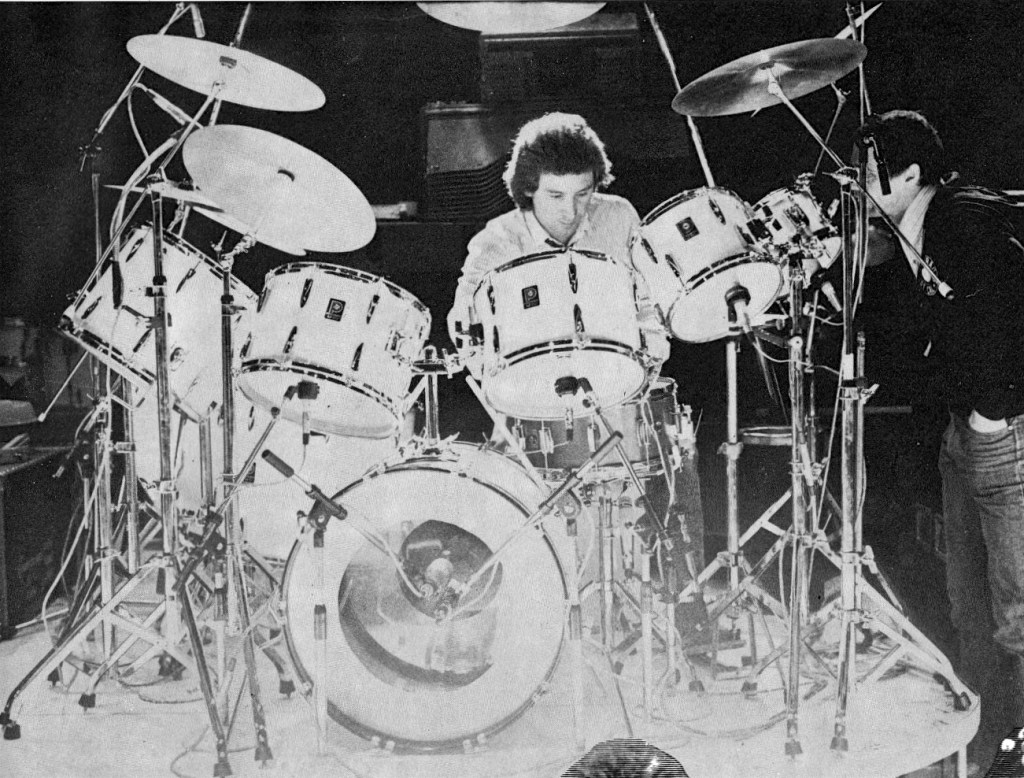
Andrew:
Absolutely. So, you were with The Who through their first “Farewell Tour,” and then again in the mid-80s. You made a couple of records with the band in Face Dances and It’s Hard. Now, Face Dances is actually one of my favorite records by the band, that said, the sound was different. You’ve just told me that was actually Pete’s intent, they wanted to expand their sound. That’s interesting, and it’s something I wasn’t aware of. It pulls those two records into a different perspective for me. Still, you were stepping into Keith Moon’s shoes. Forget The Who for a moment, Keith was something of a fan favorite in terms of drummers in general. How were you received?
Kenney:
Well, I had to answer to Keith’s legacy and popularity. And so I think it was interesting. I wasn’t doing and saying as he did. It was made clear that I didn’t want to use his identity which was nice because the band made me feel really comfortable. I was comfortable and I was having fun playing a whole new set of songs, which I really liked. When you think about the bands who were the most creative and innovative, the most fun, happy-go-lucky, and just hilarious, The Who was the most exciting. So, I could always count on the excitement of playing and the new challenge. So, that was a distraction from all the other stuff for me.
Andrew:
I think those two records you made with the band, they’re really exceptional records. They’re very fluid and musical. The band was incredibly tight, and the songwriting was top-notch. Looking back, how do you feel about those records?
Kenney:
I think they’re really fine records. We had a good time doing both of them. I was trying to play a supplementary role, and Pete said, “Go on, Ken. This is dynamite,” which was nice as far as I’m concerned. At the same time, Pete was recording his first solo record [Empty Glass], and I remember there being an issue with him perhaps holding songs back for that. I think that “Rough Boys,” which I played drums on, always sounded like a Who song to me. I remember hearing it and thinking, “This is a Who song,” but he saved it for his solo album.
Andrew:
Honestly, it does sound like a Who song. I can hear it. Pete’s solo work from that era really does mirror the work of The Who around that time, which I guess makes sense.
Kenney:
Oh, I can hear it too. Now, I’m playing the drums on it, so I said, “Pete, don’t you think this is one for The Who?” But I didn’t win, and Roger and John also thought he was looking for a way to save it and keep it for his own record. I’m glad you agree with me because I’ve always felt that way. It’s kinda like what could have been if that had come out as a Who song?
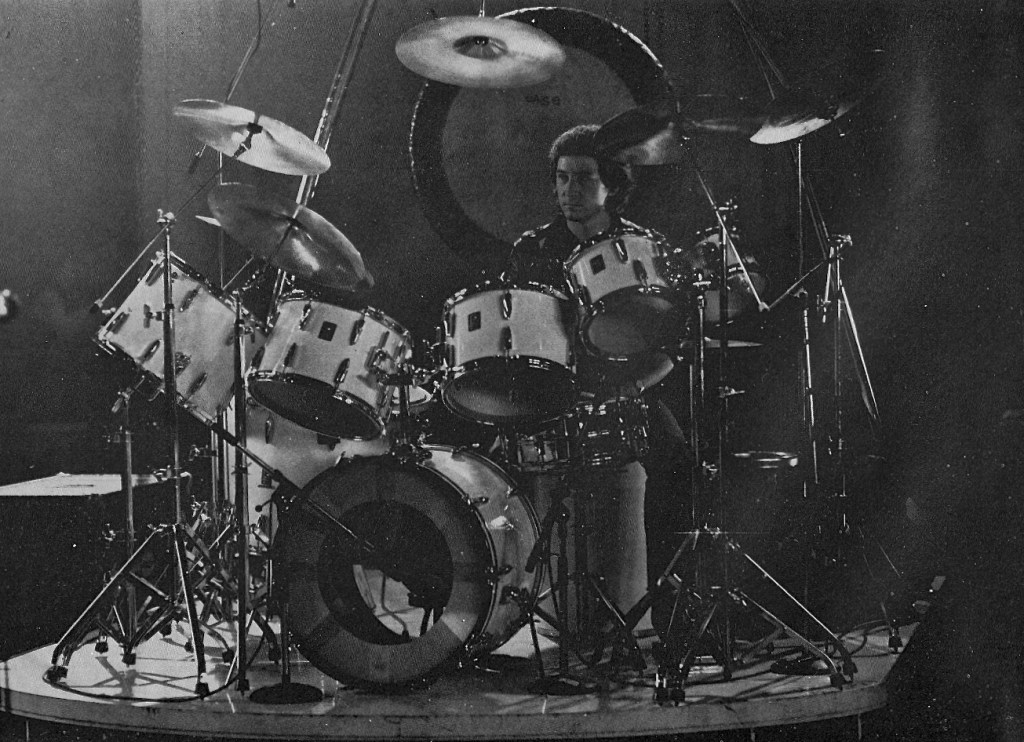
Andrew:
I would say “Rough Boys” is a Who song through and through. I always felt the same thing every time I hear a lot of Pete’s solo material, it just sounds like material by The Who, and probably would have been translated better had it been done by The Who. Pete had his reasons, I suppose.
Kenney:
I totally agree with you.
Andrew:
In a way, it makes sense. You know, he was still in The Who, and he hadn’t become solo yet, but kind of had one foot out the door, which is why the whole premature “Farewell Tour” thing happened, I guess. That was 100 percent a Who-sounding song, through and through.
Kenney:
Right. Yeah. And I mean if I could turn the clock back on something and try to get Pete out of that decision to hold those songs back, I would.
Andrew:
It’s a great song either way. So, ultimately, The Who regrouped again in the late 80s for their “Reunion Tour.” Why didn’t you continue with the band at that point?
Kenney:
Because we’d done this “Farewell Tour.” So, for me, the writing’s on the wall. And I felt a little bit uncomfortable with that because I always felt that Roger [Daltrey] was kind of, I think, affected by Keith’s absence. I’d say more than I realized initially. So, for Roger, it must have really felt like looking around sometimes on stage, looking back and Keith’s just not there. I could see that, and I was trying to balance it best I could. I think afterward, after playing that “Farewell Tour,” it just didn’t make sense for me to continue on in that way.
Andrew:
I think you in particular had really great chemistry with Pete, and that definitely shows through in his solo work, too. I think in retrospect, Keith and Roger had a sort of symbiosis. Musically, I don’t think it’s any kind of a knock on you or your style. It’s just one of those things that happens sometimes.
Kenney:
I totally agree. I mean, I think that it’s very difficult to analyze whether it’s one of those things. You don’t know how or when someone not being anymore is going to hit you or when it’s going to affect you. So, that was kind of, for me, you know, Roger had already started doing that. Also, at the time, Jimmy Page and Paul Rogers had just finished their project with The Firm. So, Paul Rogers after their tour bumped into me in a nightclub, and he said, “I want to talk to you about forming a band.” So, we got together, and we formed a band called The Law and made a great album. And actually, there is a second one that never got released. The one that never got released is fantastic. I mean, I’m trying to get it released now.
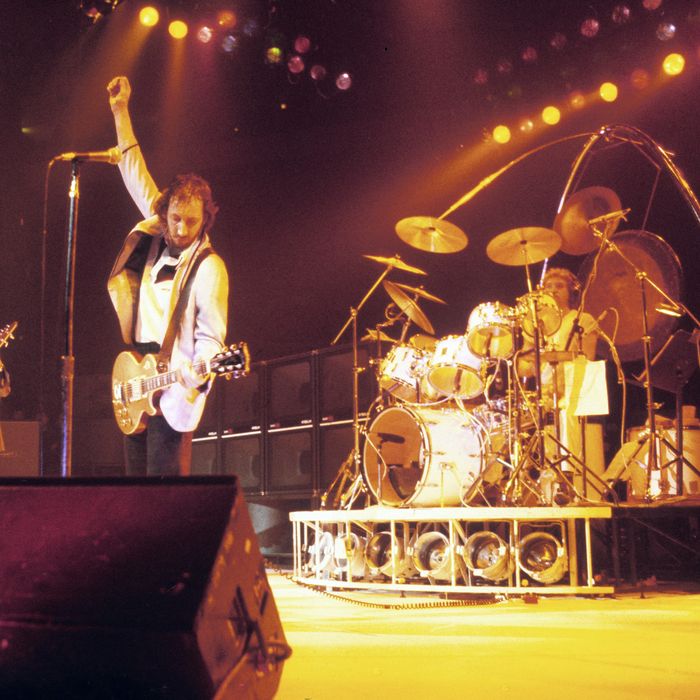
Andrew:
I was actually just about to ask about The Law. That was my next question. That was a great band with yourself, Paul Rodgers, and Pino Palladino. I had heard that there was another album out there but never got put out. I could never understand why that band didn’t take off. It good band, good songs, good players. What happened there?
Kenney:
Well, it was such an honor to record with those guys. Basically, I thought after we released the first album, I thought we would have the go-ahead and everything to get the second album out. But musically, at that time, things had changed, and I guess it just wasn’t the time for it.
Andrew:
That’s true, the early 90s were a really bad time for old-school Hard Rock.
Kenney:
Yeah, and that’s on the record company. They said, “Look, we don’t have the time. It sounds like something you would turn on 15 years ago.” Originally, that was exactly it though, and I said, “OK, we’re going to see.” So, I got more clinical about it. But the first album is full of emotion. Take away the rules and you just play your out emotions and you’re playing for real. The second record was fantastic, but the record company wouldn’t get behind it.
Andrew:
I would love to hear that record. I hope you can get it out.
Kenney:
Yeah, no, it’s great. It’s got one of my favorite songs which is a song called “Want to Make Love to You.” It’s fucking bullshit that’s not out. I remember just saying to them, “Just check it out. See if you feel something.” With songs, it’s something I need to feel. I need to feel the tension coming up as you’re getting on again. You need to get an idea, that’s all. So I did this. I said to the record company, “So come along. Come about.”… And they said, “How much is it going to cost exactly?” So, that’s the kind of emotion that’s missing with that second album not being out there. That era lacks heart and emotion.
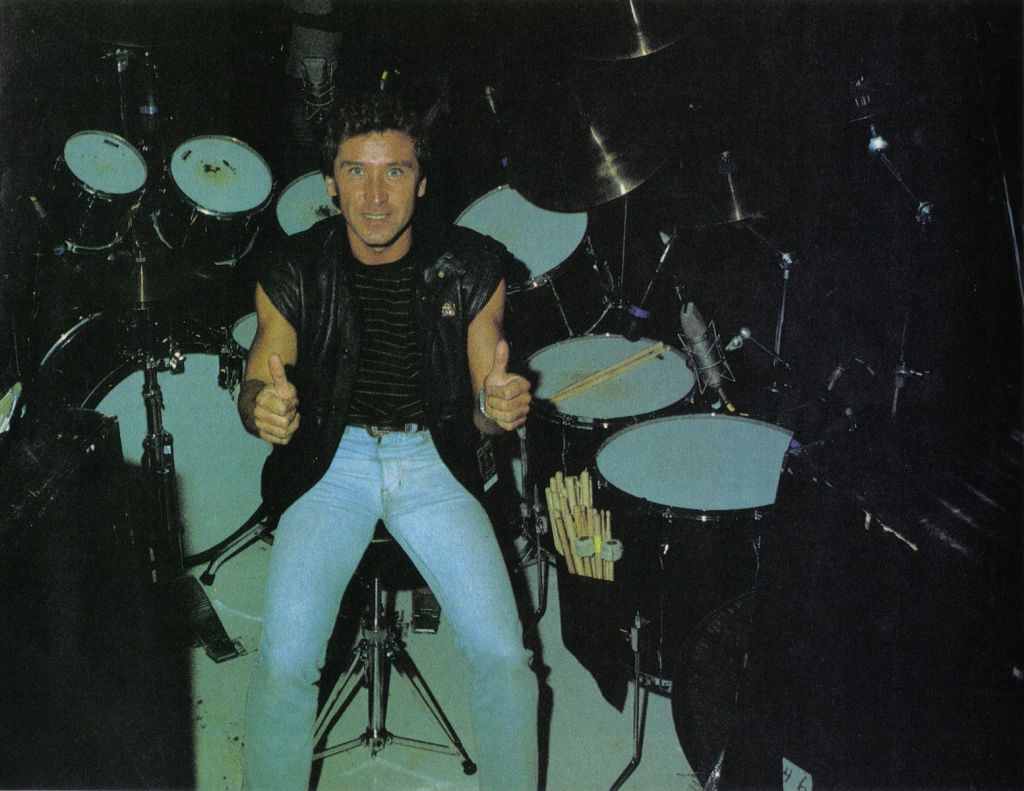
Andrew:
Yeah. That was the era. Unfortunately, it wasn’t a good time for Rock music or drums for that matter. A lot of click tracks, pro-tools, gated reverb, all that. It was different. Certainly different.
Kenney:
Tell me about it. So, that album will come out one day.
Andrew:
I am looking forward to that. Right. So, now that the hard ones are out of the way, I got a couple more for you then I won’t take up any more of your time. Are you into vinyl? Do you like tapes or CDs? How do you like to listen to music these days?
Kenney:
Well, to be honest, I’ve come to join the ranks of computers, in other words, I listen to my music digitally these days. I sense that, well, I know for a fact that the sounds are not there. I know that the middle is gone. So, I know that. Honestly, I listen to it just for reference. I don’t really listen to it, you know, to really sort of suck it up. Probably, if I want to do that, I’m in the studio more often than not.
Andrew:
So, what’s next on your docket? I know you’re working on the back catalog of The Faces and maybe you guys will get out and tour. What else is happening?
Well, I’ve got my own band called The Jones Gang. We made a great album called Any Day Now. So, I’ll keep myself busy with that. I put my memoir out a few years ago, Let the Good Times Roll: My Life in Small Faces, Faces, and The Who, which was a long, hard process that I am very proud of. There is some new music from The Faces on the way, and we’ve reworked some old stuff too. So, keep an eye out for that as well.
Andrew:
Great. Last one, Kenney. You’ve had a long career, very multilayered, you are true a veteran of the scene. What advice would you have for young artists who want to dive into things these days? I know it’s very different than it once was.
Kenney:
For me, the secret of success is never to give up. And the other thing is practice, practice, practice, and never lose your own style. Never lose yourself. That’s what you do as a musician. You are you. You are you’re playing. Don’t copy people too much. You can take a page out of someone’s book if you like. That’s great. But don’t let others’ thoughts or style become how you define yourself. That’s all I could say.
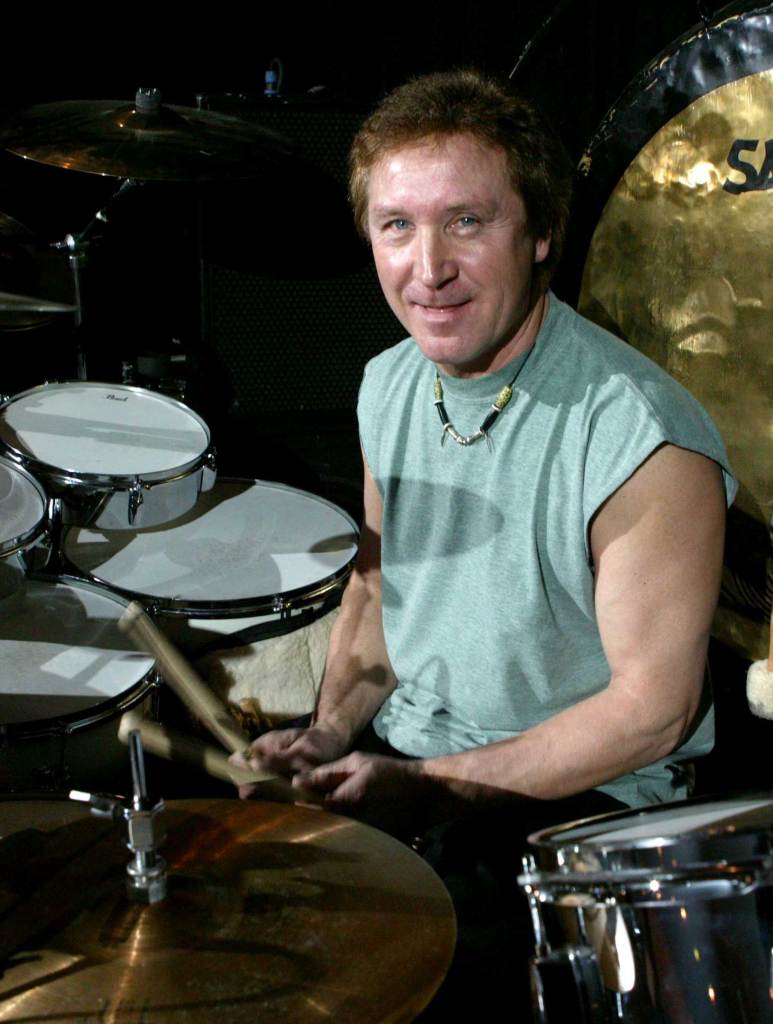
Interested in learning more about Kenney Jones? Check out the link below:
Be sure to check out the full archives of VWMusic Interviews, by Andrew Daly, here: www.vwmusicrocks.com/interview
